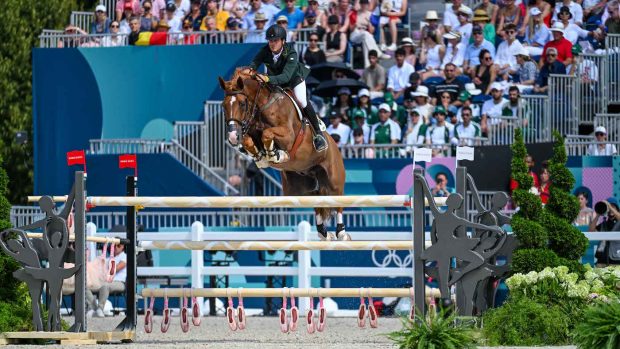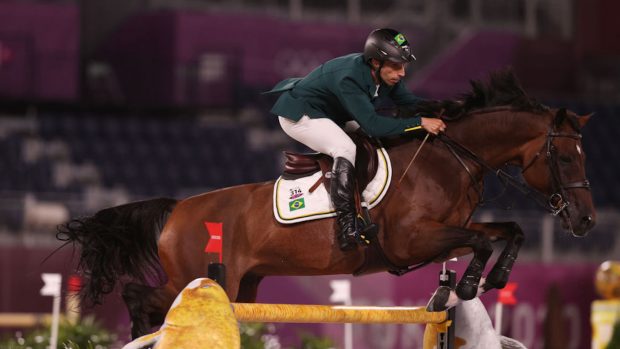Picture Brazil and certain stereotypes spring to mind — the soccer, the samba, the sun-kissed beaches... but horse sport? A vibrant equestrian culture is one of the many surprises this sprawling South American country has to offer, if you’re prepared to dig a little deeper than the clichés, says Andrea Oakes
1. There is a diverse interest in horse sport
A look at the stats reveals a diverse equestrian scene, two-thirds of it made up of western events such as barrel racing, reining and cutting. The remaining sector more closely resembles our own, comprising the Olympic disciplines plus vaulting, driving, endurance and a fast-developing racing industry.
“The equestrian competition scene in Brazil is small compared to those in Europe and the United States, but it has been growing year by year,” says Juliana Machado, a journalist at the country’s monthly magazine Revista Horse.
“More than a million horses are used in Brazil today for sport, be it classical or western. The number of competitions has also increased considerably in recent years, which has helped the technical improvement of the athletes.”
2 . Brazil’s version of the BEF is the Brazilian Equestrian Confederation (CBH)
An unprecedented push for success at its home games has been driven by the Brazilian Equestrian Confederation (CBH) — an umbrella organisation similar to our British Equestrian Federation (BEF). “The CBH has conducted several clinics with renowned professionals, brought in foreign technicians to train teams and invested in horses and events in general,” explains Juliana.
3. The size of the country can be a problem for equestrians
British trainer Nick, who was coach and manager of the Brazilian three-day eventing team from 2009-2012, says that the sheer scale of the country — it’s a whopping 35 times the size of the UK — poses a challenge to the keen rider.
Most of the eventing, a relatively small sport, is centred in São Paulo state. “The level in eventing has improved no end,” he says. “I tried to introduce more foreign judges, which is now becoming the norm. With higher-level ground jury members the riders have a better idea of where they are.
“At the top level they’re very keen to make progress and this can be seen in some of the results,” adds Nick, pointing out that riders are avoiding the “big fish in a small pond” syndrome by travelling to Europe and the States and even basing themselves abroad for training. “Those riders hungry for more success are investing time, money and effort to expose themselves to what others are doing.”
4. Eventing is starting to hit the headlines
Eventing may account for just 0.9% of the country’s horse sport by participation, yet the Brazilian riders are starting to hit international headlines. Extra investment in training seems to be paying off. While Nick had to manage the team single-handedly, the eventers have campaigned for Rio under the expert eye of New Zealand Olympian Mark Todd, with British rider Anna Ross concentrating on the dressage side.
“They’ve made a concerted effort to improve,” says Mark, explaining that certain aspects of horsemanship needed attention. “They won the South American championships in 2014 and last year came second in the Pan Am Games, giving the Americans a real fright.”
5. The horse world is a tight knit community
According to Mark, it’s a close-knit community. “It reminds me of the New Zealand eventing scene 30 years ago,” he says. “Everyone knows everyone. In the UK people are in such a hurry to get away after an event, but competitions in Brazil are a social occasion. There’s always a barbeque with a few drinks afterwards and the whole family is often involved. It’s a lovely atmosphere.”
6. Riding clubs are often like upmarket sports complexes
Anna visits the country regularly to coach the eventers and also teaches in some of the big riding clubs in São Paulo. “A lot of people keep their horses at these clubs,” she explains, describing them as the equivalent of an upmarket sports complex.
“Most competitive riders treat their horses as we do in Europe. One club I go to has its own sushi restaurant and swimming pool, and there’s often a vet based on site.”
7. There’s no Pony Club — but riding is still popular among kids
“There’s no Pony Club, as such, but you do see a lot of kids riding,” adds Anna. “Quite a few children ride horses, usually kind, well-behaved animals.”
Youngsters hoping to progress must largely rely on financial help from their parents. Funding is limited at all stages and what there is available is difficult to obtain, although some sponsorship exists, mostly in the high-profile sport of showjumping.
8. Brazil is proud of its showjumping legends
Brazil’s climate means that the showjumping circuit is outdoor-based and year-round, except for the very hottest part of the summer, when most competitors take a break. There’s a lively amateur scene and a clique of professionals holding their own internationally.
Chief among these is Rodrigo Pessoa, whose father Nelson — known as “The Wizard”, for his bewitching riding style — made his first Olympic appearance in 1956. Rodrigo has dominated at the highest levels for decades and aims to make history on home turf this summer as the first Brazilian to make seven Olympic appearances.
With multiple Olympian Doda de Miranda in the running and legendary American rider-trainer George Morris at the helm as team coach, the Brazilian team could be formidable. Belgium-based Pedro Veniss is also hotly tipped.
Like this? You might also enjoy reading these:
The BIG Olympic quiz: are you set for Rio?
9. There is growing enthusiasm for dressage
The country’s dressage is largely centred around the riding clubs, using quality Lusitano horses. With little in the way of dressage heritage and a limited grand prix scene, ambitious riders are travelling to the sport’s leading nations to train and compete. A surprising number are campaigning for a place on the Olympic team, under the shrewd management of Belgian former international dressage judge Mariette Withages.




